|
Waste no more time arguing what a good man [person] should be. Be one." — Marcus Aurelius June and July… Where did they go? Both months offered a great deal of progress for me. Book 2 is coming along quite well. I am writing a short story for an upcoming anthology, and my role as a Municipal Liaison for 2022’s National Novel Writing Month is being finalized. I took some time away from writing for a short vacation to St. Charles, Missouri. Meg and I spent a nice weekend relaxing in a room near the Missouri River and Katy Trail State Park. The Katy, as many folks in Missouri call it, is one of the longest rails-to-trails in the nation, and it was being well-used during our vacation. The town itself has a long history. We walked the main thoroughfare numerous times, examining shops, visiting museums, and enjoying music. I encourage you to check out the town, if you are near St. Louis or traveling along I-70 in eastern Missouri. If you are able to take an entire weekend to visit, then you’ll see the intricacies of a town being well taken care of. One of my favorite parts of visiting was witnessing how much support the creative arts receive. The Foundry Art Centre is unique - artists have a permanent structure near the old downtown of St. Charles. The artists each have a set office and studio to meet interested folks passing by, to work on their own art, and to help educate new artists. This type of collaboration is what bolsters civilizations. Meg and I met a retired art teacher whose room is filled with amazing ceramic sculptures and pottery. Mr. James Carlson spent several minutes with us offering cool stories about his love of art, his love of teaching children, how to create art, and showing off his collection. Writing Highlights:
Five-Year Plan: Plans are tricky, as they are only good for the moment they are created. They offer a guide, but can be changed any day or hour, and thinking ahead five years can cause consternation for any prospect. But I’ll offer my long-range plan as a method to help guide my path and you have a better idea of what of what is coming: 2022:
The inspiration section will be on hold until the next update. The topic will be WPA (Works Progress Administration. Continued challenge for the next two months: Take a few moments to think about what inspires you. Please be sure to check out my website for continuous updates on my progress. Some of the updates are below:
Thanks again for your support! Besides taking the time to read my updates, please visit the following links to create a review of The Alterator’s Light, The Point of Woes, or The Tower of Dread if you’ve read those stories. Reviews are quick to create! They offer potential readers insight into what you thought about the book. They also help get the word out about the stories and the author. You can simply search for the title of each of my books on Goodreads and/or Amazon or follow the links below. For Amazon, please click here. For Goodreads, please click here. You can also check my work out at BookBub by clicking here. May the next month bring you solace.
0 Comments
“What is your vocation? To be a good person.” — Marcus Aurelius April and May were a flurry of activity. Writing was mixed within numerous personal goals. Kylie and I visited Caleb in San Antonio in late April, to celebrate his graduation from Basic Military Training. Upon finishing BMT, he was promoted to Private First Class due to his four years in JRROTC. We were only able to spend 8 hours with him – so we visited everywhere possible in San Antonio: the River Walk, the Alamo, and the Tower of the Americas. We bid him a fond farewell that evening, and he has been residing at Lackland AFB since then. He is readying for his next assignment, and of course, letters and calls (when he has phone access) have been a normal part of the week. Then we spent the remaining few weeks of May helping Kylie through the end of her junior year of high school. She had numerous soccer games, an art show, and one final trip to Kansas City, where we enjoyed the day together before her departure. She flew to spend the summer with her mom in Philadelphia. She is also working on a summer class while looking for a part-time job. Writing Highlights:
I have always enjoyed lists offering the “best” of a various genre and why they can be very important. Of course, keep in mind that the lists can be relatively subjective and target only traditionally-published books. I am hopeful that independent lists will start forming soon, as independently-published books are positively changed the nature of publishing. The following is one recent example that I included in the last update. 50 Best Sci-Fi Books of All Time - What Is The Best Science Fiction Book Ever Written? (esquire.com) You might be thinking: why would a list be inspiring? For me, it helps me broaden my gaze. These lists offer ideas, authors, or genres I may not have ever thought of trying out. Lists now tend to replace one of my favorite things to do: visiting a bookstore. Waldenbooks held the first fantasy book I purchased with my own money. (Sadly, Waldenbooks is no more, but I can still remember picking that book off a spinning metal rack full of other fantasy novels) Borders and Barnes & Noble also provided me with many books that I found only by browsing the racks. Part of the problem with finding a new book for modern readers is tied to the decreasing number of local bookstores. For example, a local bookstore I used to visit frequently closed in the last year. Now, the closest bookstore from me is 20 miles away. Scrolling Amazon for a new book simply doesn’t have the same impact as walking the aisles of a bookstore. The anticipation of visiting a bookstore (especially on a Tuesday when new books were released) sometimes held a great deal of excitement. Nevertheless, I understand that brick and mortar bookstores simply aren’t as prevalent as they were even 10 years ago. As an author, I recognize new readers may only find my work through an online list or update, such as this one. Thus, how do we create memories and outlets for new readers? Create a list of the “best” novels and disseminate it far and wide. There is nothing wrong with that method, and I recognize that it can be very helpful. Regardless, you’ll still not find a collection of philosophy books without browsing a local bookstore, such as Prospero's. 😊 The update for next month’s inspiration: WPA (Works Progress Administration) I offer you a challenge for the next month: Take a few moments to think about what inspires you. You have power over your mind – not outside events. Realize this, and you will find strength. — Marcus Aurelius The last 1.5 months didn’t see as much writing as I had hoped for book two – a great deal of personal activity altered my focus, which delayed not just getting much more writing done, but also the five-year plan was somewhat delayed. My son was notified in mid-January that he was being sent for his Air Force basic training. This event was in the works for several months, but we didn’t know exactly when it would occur. Alas, when Caleb wasn’t working at his interim job, I tried spending as much time with him as possible before his departure on Monday, February 28. Then, the dojo I had been using for another passion – martial arts – needed my attention. The location I had been using for a dojo was no longer available, so I was on a frantic search in the same city to ensure the students did not suffer a lapse in their own path. I’ll offer additional updates below on that journey. Finally, writing is like any other pursuit – life sometimes does have a way of interrupting whatever plans you have developed. Highlights:
Martial arts are an inspiration for me – whether in person, on film, or in books. I began my personal journey in early 2010, and I’ve never looked back. In the spring of 2018, I was offered a unique opportunity to help lead the classes in the Sedalia/Warrensburg area. Since I took on that role, I have learned to enjoy martial arts more than I ever thought possible. For me, leading two classes twice per week and now a once per week iaido (sword) class has been exciting. I am able to continue my own journey while helping other students learn how to defend themselves and/or their families from a potential assault. Of course, martial arts is not just about self-defense. It can be meditative insofar that it is a very individualistic artform. Essentially, each student progresses at their own pace with the guidance of the sensei and help from other students. Progress is witnessed by how much effort one spends in class and outside of the dojo. The realistic goal of any self-defense study is to learn how to defend without thinking; for example: you block an attacker without thinking about which technique to use. Finally, martial arts offers an excellent method of maintaining flexibility, cardiovascular endurance, and strength over the course of your life. It also gives an opportunity to the student to keep their mind focused on the moment without distraction from outside sources, which ties into the quote offered at the beginning of this update. During my search for a new dojo, I used all the resources available to help reduce the stress of the situation. By the beginning of March, we were in a new location with no lapse in our training. Throughout February and March, I continued my path with iaido. I promoted to shodan (black belt), which offers even more opportunities to continue my martial arts path. To learn more about iaido go here. The update for next month’s inspiration: I enjoy viewing lists offering the best of a various genre and why they can be very important. Here is one recent example to help whet your appetite. These types of lists help me find new items to help my imagination. I offer you a challenge for the next month: Ensure you take a few moments to relax. “Life is very short and anxious for those who forget the past, neglect the present, and fear the future.”
—Seneca Groundhog Day was a snowed-in event for many folks in the Midwest. Regardless of what a small groundhog may have witnessed in Punxsutawney, Pennsylvania, we still have nearly 6 weeks of winter remaining. January proved to be effective for book two, and I’ve even thought of the ending of the Rune Cycle. I’ll explain more on that a bit later. I’ve considered a putting together a five-year plan for my business. Several nations have used such plans, but to their detriment due to the plan’s rigidity for a large society. On the other hand, five-year plans in any career, at least from my experience, offer a clear idea of where you are going. Writing is fun, and it is a business. Writing the words down is obviously very important, but web management, art direction, advertising, in-person meetings, editing, and promotion of the work is arguably just as important. Highlights for January:
I am inspired by games, as they create a place for friends and family to join together for an afternoon or evening. Players can work together to defeat the game itself, such as Pandemic Legacy: Season 1, solve a mystery with Sherlock Holmes, or try to build one of the 7 Wonders. My family and I play games on a regular basis, and we have many in our collection that we’ve added to over the last twenty years. We are approaching 400 games, which may seem excessive to non-gamers, but we have a game for almost any interest or genre. Solo games, cooperative games, such as Pandemic, 2-player games, legacy-style games, and many other games for 2 or more people are commonly played in my household. I am inspired by board (as well as card and role-playing) games because of the ingenuity it takes to simply create a game. Wingspan is a newer game developed by Elizabeth Hargrave in the last five years; it has become a huge success in the gaming community and with those who enjoy nature/birding. You can hear a short interview about the game here. I highly recommend Wingspan! I am also fascinated at where the gaming industry has gone in the last 20 years. Realistically, the gaming industry has exploded beyond the classics, such as Scrabble (which is still an excellent game), to the multitude you may find in your local gaming shop. Games have inspired me enough that I even created a board game for the Rune Cycle. You’ll see characters enjoying it throughout the story. Games have been with humans for millennia, and my addition adds more to the world-building aspect. Who knows — perhaps I’ll adapt the Rune Cycle game for you to play some time! Even board game companies have a five-year plan. Stonemeier Games, for example, recently released their five-year plan and it is really interesting to see what they plan on accomplishing. They’ve produced some of the newer games you may not have heard of and my family enjoys many of their selections. If you’re interested in their plan, check it out here. How long are you going to wait before you demand the best for yourself? – Epictetus
My last update was in late October, so I am getting back in the routine of monthly updates. I’m glad you are joining me again before the new year. I spent the month of November working on NaNaWriMo and all the relevant activities throughout the month, which included working toward the end of the first draft of book 2. Late October and all of November were consumed with writing as often as possible. Highlights for November and early December:
Stoicism has become a fascinating point of study for me throughout this entire year. I had studied it nearly twenty years ago while working on a minor in philosophy. Even in those classes, we spent very little time on it, and what I had learned was relatively vague. A “stoic” person is generally seen as someone who shows very few emotions. A stoic is almost an aloof automaton in the general understanding. In reality, though, a practitioner of stoicism is someone who strives toward a path of tranquility. The quote at the top from Epictetus also illustrates an important facet of Stoicism: within that tranquility, strive to be the best you can be. That requires constant study of the outside world and oneself: how can I best use my knowledge to become a better person? Emotions can cloud even the most stoic person’s mind, yet it is up to that stoic to continue the path of tranquility no matter how difficult the situation. Through self-mastery, the stoic can better themself, and then, by extension, the world/humanity. To say the least, Stoicism is fascinating. The study has changed my life in a positive and effective way. If you are at all interested in learning more about it, then check out this cool site for more information. I offer you a challenge for the next month: What progress are you going to make on a project - big or small - in 2021? I'd love to hear from you. This brief update will be my last until early December.
My time until then will be devoted to prepping for National Novel Writing Month (NaNaWriMo) and all the activities throughout the month, which includes finishing the first draft of book 2. Late October and all of November will be consumed with writing as often as possible. Highlights for September and early October:
“Progress is not achieved by luck or accident, but by working on yourself daily.” ---Epictetus A longer section will be on hold until December — look for a longer entry then. I offer you a challenge for the next month: What progress are you going to make on a project - big or small - over the next 6 weeks? My apologies for a late August update, but I decided to wait to share two noteworthy topics.
Highlights for August:
Inspirations: For the last two months, I’ve focused on preservation and disregard. My inspiration this month will focus solely on what we choose to preserve. Last month, I wrote, “The forgotten gems can and usually do stop me in my tracks.” Until I witnessed this month’s inspiration, I wasn’t sure how soon I would be stopped again and by something that travels literally on tracks (or rails). Union Pacific’s Big Boy No. 4014 is a magnificent machine. If you click here, you’ll learn significant details about the engine and its path across the United States. I had the opportunity to see it late in August as it stopped in Warrensburg, MO. Before planning my own visit to see the locomotive in person, I wasn’t sure how many people would be in attendance. The Big Boy’s stop was in the early afternoon on a weekday, which lead to me think that it would have few in attendance due to everyone’s many workday obligations. Fortunately, my assumption was shattered! Many people waited in anticipation for the Big Boy’s arrival. People crowded the streets on either side of the tracks. The city’s staff had also thoughtfully blocked the roadway to keep vehicles from traveling through while we waited. I was inspired to witness so many people waiting patiently, as well as their smiles as the engine rolled into town. The train engineer blew the whistle to excitement of the crowd. The whistle was not the traditional high-pitched warning of modern engines, but a deep, spine-tingling version that could be heard from blocks away. The Big Boy’s whistle could be equated to the deep, resonating, and thunderous Fourth of July fireworks display whereas the modern whistle is that of a small firecracker. If you ever have the opportunity to witness the Big Boy, you’ll not be disappointed. Besides the Big Boy in late August, the first trailer for the upcoming Wheel of Time show was released. The past two decades have been an exciting time for fantasy and science fiction films and shows. The Wheel of Time is considered one of fantasy’s greatest series of books, so many readers are eagerly awaiting this new series. Robert Jordan nearly finished the series, but after his death in 2007, Brandon Sanderson took up the mantle and was able to complete the last 3 novels of the 15-book series. Sanderson took the task to heart, and while his renditions of the final three WOT books had a few very minor missteps, I was and remain amazed at Sanderson’s ability to finish such a monumental series. (Note: even with the missteps, the final 3 books are excellent.) As a side note: I encourage you to read Sanderson’s letter about Jordan’s influence shortly after Jordan’s passing. Jordan had struggled with a rare illness for many months prior to his death, and I was somewhat comforted in my own sadness by Sanderson’s compassionate letter. Jordan’s The Eye of the World is still one of my favorite fantasy novels. Considering the breadth of the WOT, I can’t imagine trying to adapt the novels into shorter films; however, streaming services, such as Amazon and HBO, have been able to offer the flexibility needed for such books. Nevertheless, the trailer illustrates the necessary liberties taken to adapt the series. Click here for the trailer. Interestingly, the WOT is also listed on PBS’s The Great American Read. Click here for the full list of 100 books. Another BIG film adaptation coming out in the next month is Dune. The trailer offers a clear picture of the science-fiction epic’s vastness and scope. Click here for the trailer. I offer you a challenge for the next month: Think about novels or stories you've read that have been adapted into movies or shows. What did you think about the adaptation? I'd love to hear your thoughts. Progress on the first draft of The Blighter’s Shadow’s is steady. My application to serve as a Municipal Liaison (ML) for this year’s NaNaWriMo is still under review. Apparently, the organization received many applications this year; I hope to have final confirmation soon.
My inspiration this month continues to be what human beings choose to preserve and disregard. Realistically, I could write an entire monograph on this subject. (Perhaps, I will take the time one day.) I strive to keep an eye out for forgotten things that humans have constructed, no matter how seemingly insignificant. The forgotten gems can and usually do stop me in my tracks. One example is from a recent trip I took with my family to New Orleans. Something as mundane as a decorative metal fence installed to once protect a growing tree’s trunk is now being encapsulated by the tree itself. The grate meant to protect the base of the trunk is also being slowly overgrown. Nature does take advantage of our forgetfulness more than we care to realize. On the other hand, should a city worker decide to forcibly remove the fence and grate, then the tree will likely suffer severe damage and potentially die. So, one can hope, in this instance, that the tree will keep growing around the fence and grate to live a fuller life, forgotten and disregarded. The National World War II Museum in New Orleans is one of the town’s gems. Those seeking more information about the war can easily find a multitude of documents, monographs, and documentaries about the subject. Less easy, though, is traveling to and studying a collection such as what is housed within the museum. WW II is largely remembered as a war that shook the foundations of the earth — tens of millions of people died in terrible and monstrous ways. Yet, the awe-inspiring effort spent to stop the authoritarian powers is generally considered the redeeming factor within all that death. No one can argue that the fight to stop the Axis power wasn’t worthwhile. Those ideas are relatively universal at this point but seeing first-hand some of the artifacts involved in the fight can offer a more tangible source of inspiration. Seeing a restored Ford GP (jeep) with a replica chocolate crate makes one smile amidst the thought of the carnage that such a vehicle would have had to travel through in either theater of the war. It also helps you realize that war forces innovation: for example, this jeep had a long piece of steel welded to its front to catch neck-high tripwires strung across roadways. A significant preservation effort is the time and effort spent on memorializing fortresses meant to once protect trade routes or national boundaries. One example is Fort Pickens near Pensacola, Florida. The fort is massive and is at the end of a long, narrow island in Florida. From someone on a ship, the fort must have seemed relatively small; yet, to wander its vaulted hallways and slender tunnels, visitors are left with the impression of a monumental effort nearly two centuries ago. Despite most of the fortress now sitting in relative ruins, a wandering visitor can easily put themselves into the mind of a soldier following an officer’s orders to retrieve cannonballs for the next volley. This makes me wonder: centuries from now, what structures and artifacts will those human beings study or enjoy as nothing more than a relic of the past? Will they find that each major city had multiple sports arenas, akin to the ancient Romans who had coliseums throughout the empire or will the arenas have been torn down to make way for something else. Will most roadways have become nothing more than rubble-strewn paths that hover vehicles pass over. Will our museums remain intact and bolstered by additional study or fall to the wayside much like a no longer necessary border fort. 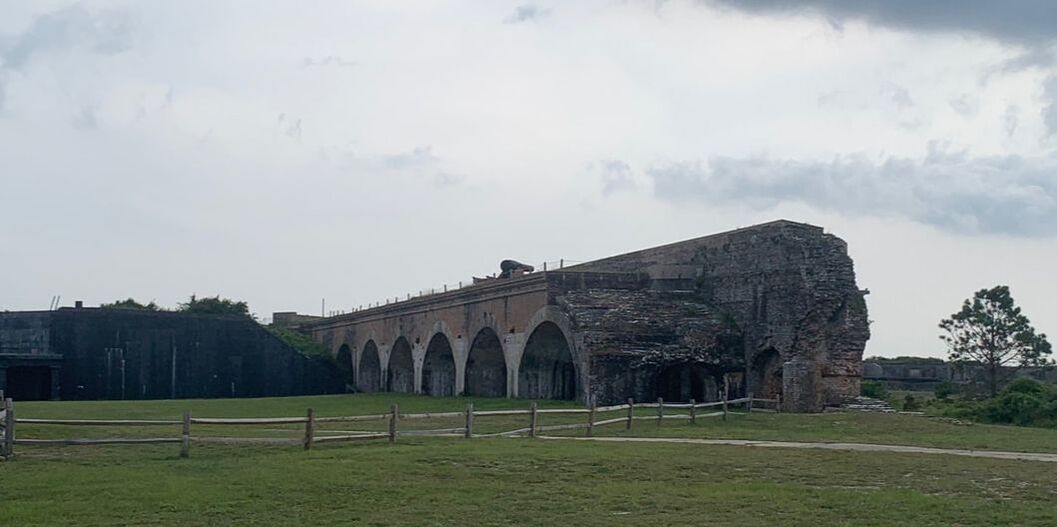 I offer you a challenge for the next month:
When you have a moment, ponder an item or place that you treasure. How do you think the future will treat the treasured item or place? I highly encourage you to visit some of these places first-hand to help evoke your own sense of wonder. Or reach out to me and share an experience you’ve had which fills you with wonder. Please be sure to check out my website for continuous updates on my progress. Some of the updates are below: I continue adding a few short book and/or movie reviews. I finished some books last month that I want to share with you. You can find my thoughts here. If you have questions for future newsletters/updates, please be sure to send them to [email protected]. There are numerous media links for your convenience: on Twitter at @brigmanauthor, on Facebook at Dan Brigman, Author, or on my website, www.danbrigman.com. Thanks again for your support! Besides taking the time to read my updates, please visit the following links to create a review of The Alterator’s Light, The Point of Woes, or The Tower of Dread if you’ve read those stories. Reviews are quick to create! They offer potential readers insight into what you thought about the book. They also help get the word out about the stories and the author. You can simply search for the title of each of my books on Goodreads and/or Amazon or follow the links below. For Amazon, please click here. For Goodreads, please click here. You can also check my work out at BookBub by clicking here. Until next time, I hope the month of August brings you solace.
My inspiration this month extends to what human beings choose to preserve and disregard. One significant preservation effort is for cemeteries. Cemeteries have been created and maintained for thousands of years around the world to memorialize those who have died – of course, cemeteries vary in size, level of upkeep, and the number of plots. I recently visited a cemetery added to Missouri State Parks within the last month. It is located near Arrow Rock, Missouri and you can find information here. I’ve visited many cemeteries around the United States – from local cemeteries to Arlington National Cemetery in Washington D.C. All cemeteries I’ve visited carry a measure of solace and peacefulness; however, Sappington African American Cemetery State Historic Site is one of most serene cemeteries I’ve visited. Sitting in the shade of the huge walnut trees, I could ponder my own life and attempt to envision the lives of those who lay buried at the hollowed site. I highly encourage you to visit this place. I am also inspired by what human beings disregard. Disregard in the extent of construction that once served as a prime location for human activity. But, over time, human activity ended, and the construction is now given back to nature or simply forgotten. There are many reasons for disregarding areas and structures: lack of need, cost of upkeep is untenable, environmental concerns, and a simple lack of attention over time. One singular and unifying principle: nature will reclaim what we choose to disregard. Entire books have been written about the idea of how nature would reclaim the world. The World Without Us is a good place to visit for one example. Of course, Weisman’s book is a thought experiment, many novels, video games, and movies cover fictional accounts of what happens without humans taking care of what we construct. One fascinating website offers many places to fuel the imagination. As a fantasy and science-fiction author coupled with a fascination of nature’s reclamation process, I am intrigued by human preservation efforts. The effort is vast, far-reaching, and can be exceedingly costly. Yet, I am also fascinated by the beauty in what occurs when we choose to disregard our efforts. I offer challenge for the next month: When you visit a place that is undergoing preservation efforts, such as a building, or you see a place that is undergoing a level of disregard, simply spend a few moments pondering the importance that the place has or once had.
The many varied methods of communication that human beings have developed serve as an inspiration for me. For millennia, our primary source of communication was through face-to-face interactions, which worked well in tribal communities. We shared our knowledge, updated each other through gossip, and gained insight using little more than our voices. Writing, of course, became a monumental development in which ideas, records, etc. could be preserved for posterity, which further bolstered humanity. Much writing from thousands of years ago has been lost, unfortunately, but we still have a wealth of knowledge recorded, saved, and studied today. (I’ll offer one such example in a future update.) Pre-history itself can be loosely defined as any time in which we don’t have direct written records. History, therefore, becomes loosely defined as the time of written records. A time in which humans attempt to permanently preserve their thoughts. Communication methods today would astonish people from thirty years ago, let alone 1000 years ago, yet we quickly take for granted the ease of modern communication. For example, in 1991, email was exceedingly rare. Twitter, Facebook, TikTok, and all the other social media formats were nothing more than a faint dream. Cell phones were still clunky. Home computers were still relatively rare and expensive. For most people, sending a text message consisted of writing a letter, putting the letter in an envelope, and then placing the stamped/addressed enveloped in the mail. Days would pass before a response was received either via mail or a phone call. Phone calls are now considered a burden by many people. 😊 Communication is an exceedingly powerful and inspiring tool. Regrettably, the last decade (with the implementation of numerous social media platforms) has shown us that communication tools can be significantly abused. Yet the platforms can also offer clarifying insights that would have caused the ancients to marvel. Of course, that begs the question: if we can offer clarifying insights through those platforms, which leads to bettering humanity in general, then why would anyone want to abuse their ability to communicate? The answer to that question has no simple answer other than we are not always rational and don’t act in the best interest of humanity. Effective and clear communication is a struggle for nearly everyone; in the age of instant communication, thoughts are posted online as quick as they flash through our minds. Nevertheless, I look forward to seeing the various enhancements to our ability to communicate, as they will help us create wonders we’re still dreaming about. I offer challenge for the next month: before you post something at an online forum, in a text message, etc. take a moment to consider the implications of your words. Perhaps, your well thought out interaction will inspire someone such as myself. Please be sure to check out my website for continuous updates on my progress. Some of the updates are below:
Thanks again for your support! Besides taking the time to read my updates, please visit the following links to create a review of The Alterator’s Light, The Point of Woes, or The Tower of Dread if you’ve read those stories. Reviews are quick to create! They offer potential readers insight into what you thought about the book. They also help get the word out about the stories and the author. You can simply search for the title of each of my books on Goodreads and/or Amazon or follow the links below. For Amazon, please click here. For Goodreads, please click here. You can also check my work out at BookBub by clicking here. Until next time, I hope the month of May brings you solace. |
Dan's IntrospectionsA place to ponder the world of writing, among other things. Archives
May 2024
Categories |



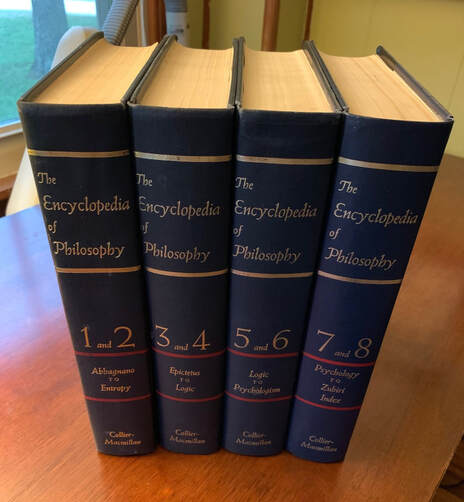
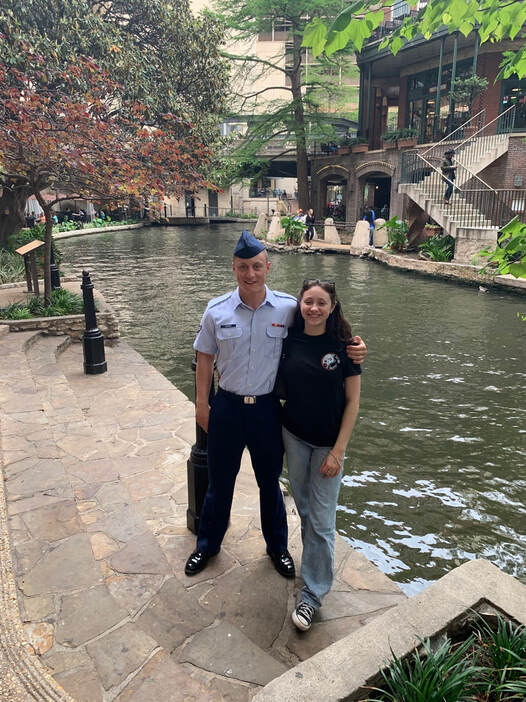


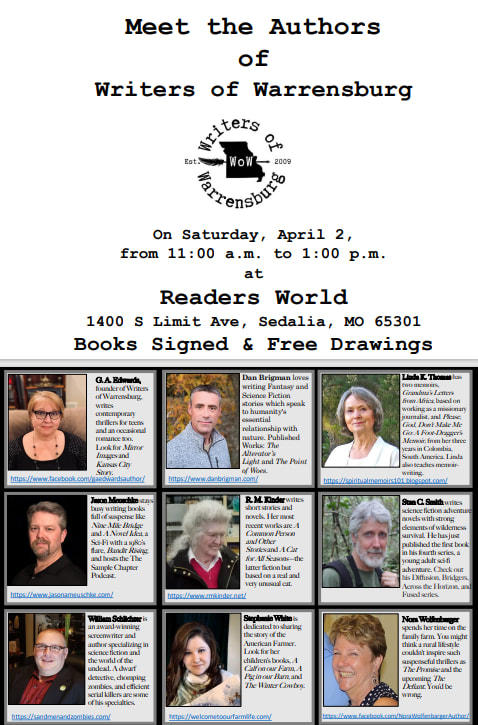
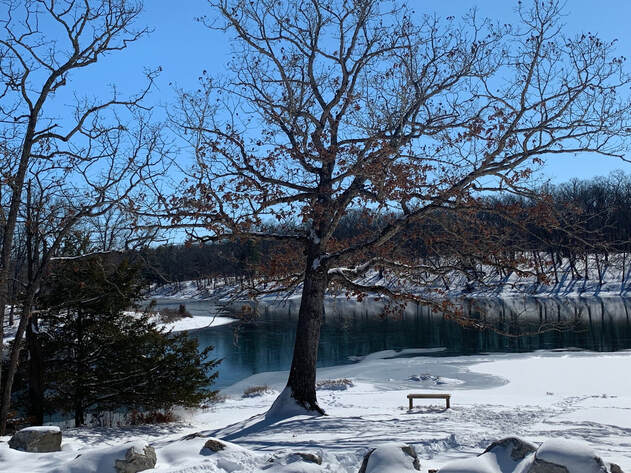





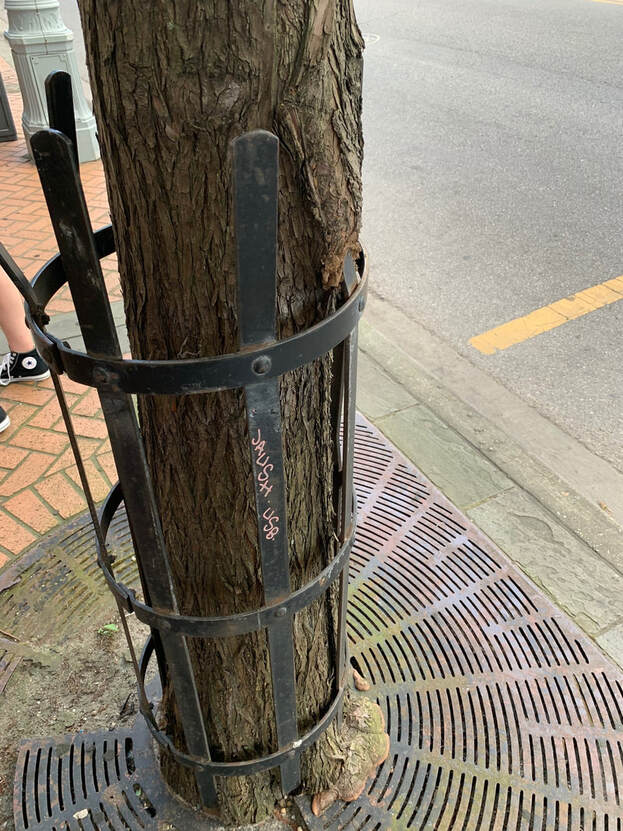
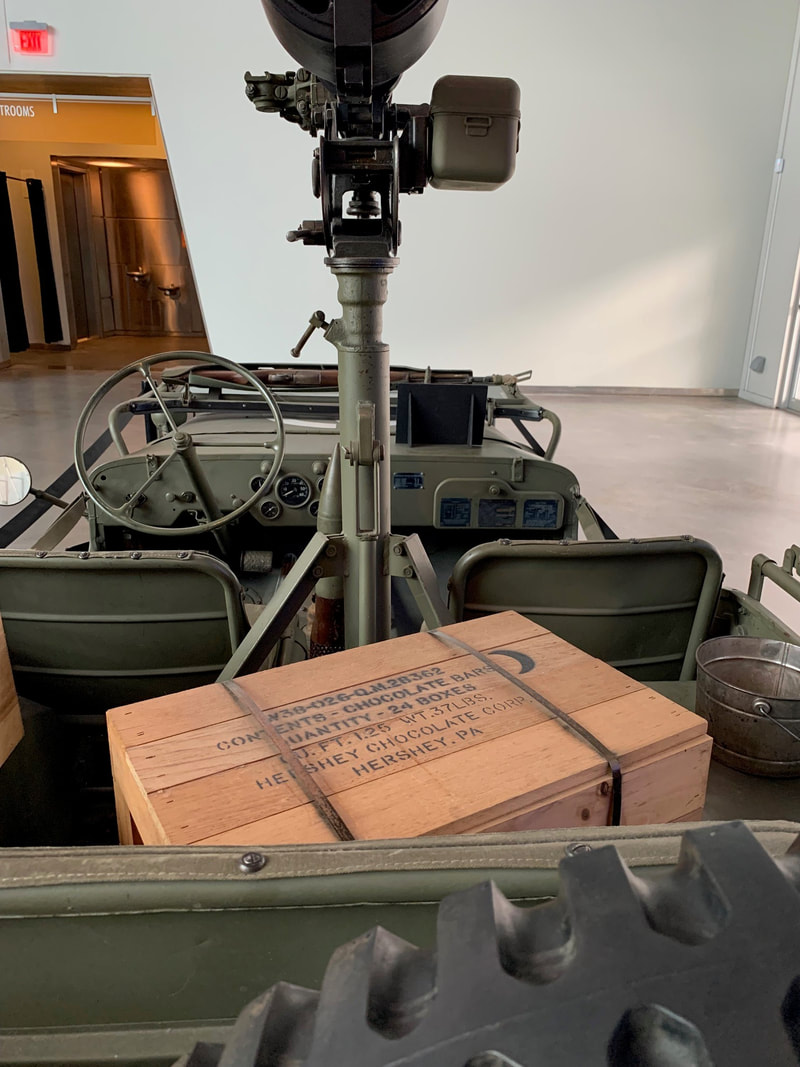
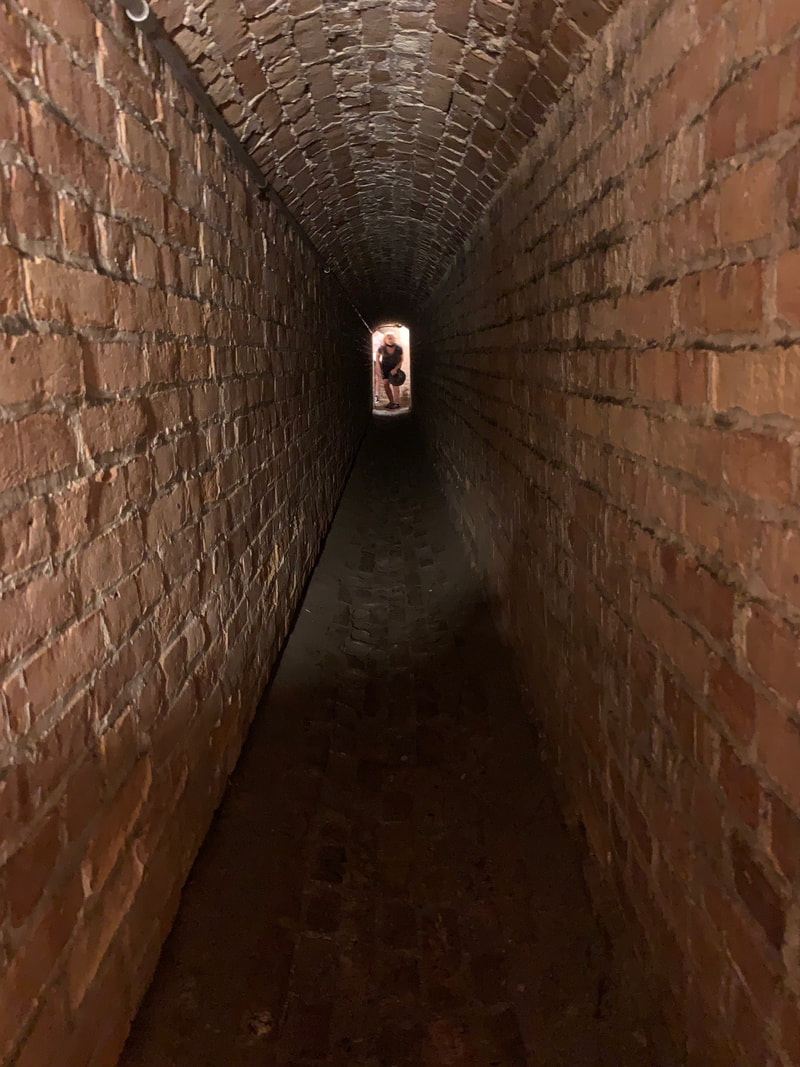
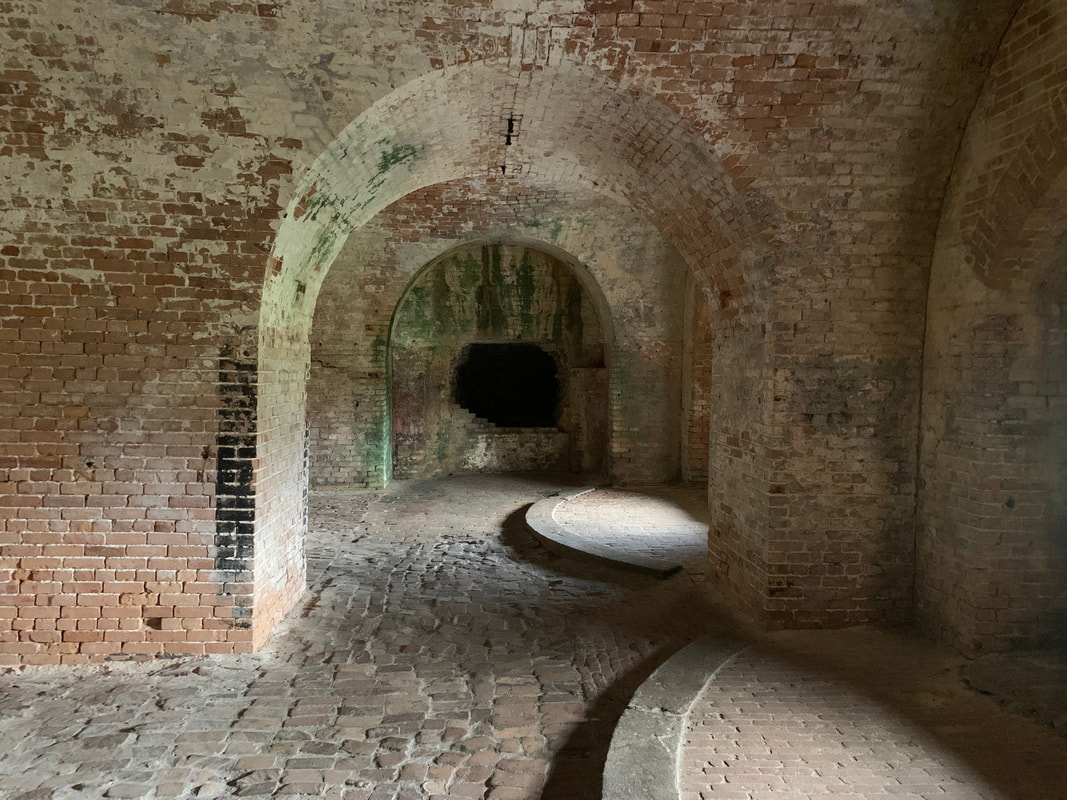
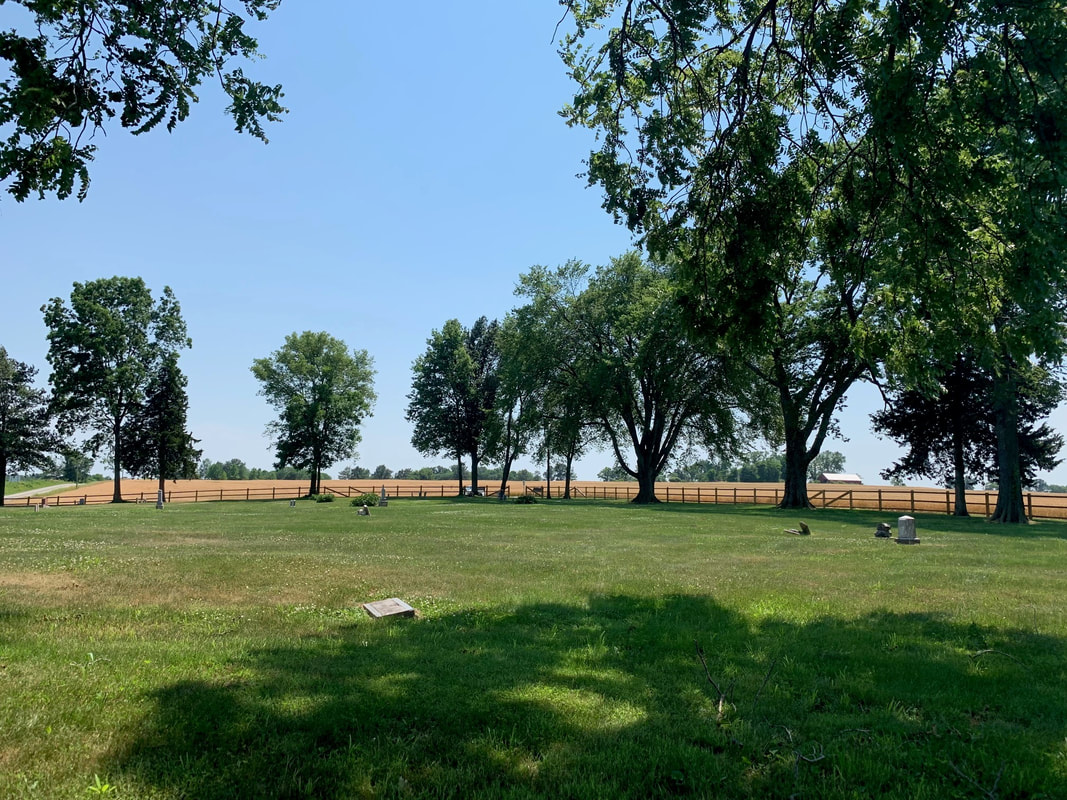

 RSS Feed
RSS Feed